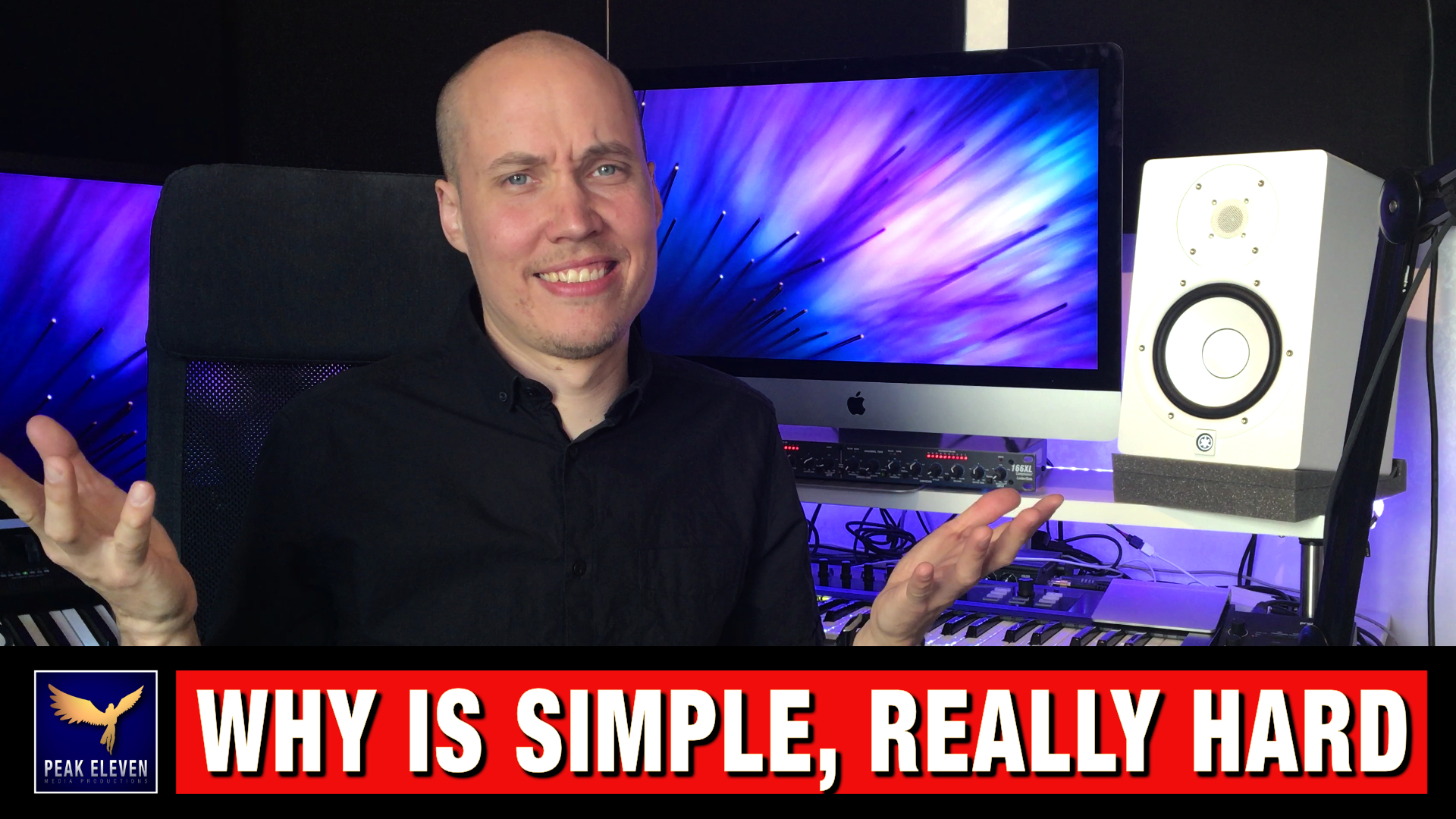Learn the lessons I have made from trying to make corporate music for royalty free stock music libraries like Pond 5 and Audiojungle. Read on or Watch the Video.
 Hey friends, Mike here. Today I want to share something about composing music, that I have struggled with a lot. Especially these last few weeks, because I have been trying to make corporate music for Pond 5 and Audiojungle.
Hey friends, Mike here. Today I want to share something about composing music, that I have struggled with a lot. Especially these last few weeks, because I have been trying to make corporate music for Pond 5 and Audiojungle.
You know, music that is super upbeat, light and uplifting.
But most importantly..this style of music is supposed to be super simple. Meaning you should mainly use simple block chords, a straight upbeat rhythm, often the same chord progression throughout the whole song, and mainly using only the standard 1-4-5 triad chords.
Let me Share my Story
So I start the composition…and it might be simple at first. But…then I start “spicing up” those block chords with comping rhythms on the piano. And then I come up with a motif that includes more harmony and performance expression.
Then I just “by accident” come up with a twist in the story, meaning for example modulating the key going into completely other chords. Of course I then add color to the chords by going away from simple triads into Major 7ths, add 9, suspended chords, and so on. That’s basically the point I want to make.
I have so much trouble keeping things simple, even though as I start the track I know it is supposed to be a simple track.
So what’s the lesson here?
Well…I know that me personally, I need to set up more boundaries and restrictions when I compose music…basically limit myself so that I don’t go down too far on that artistic road. Creative freedom is a great thing, but let’s face it.
If you have a job, and by the way….composing music for a specific purpose, is a job. And with any job you start with: “a vision that dictates your mission”. What are you trying to create? What is the purpose? What is the end use of your music? Let’s repeat that, because this is HUGE!
Create the Vision that dictates Your Mission
Then you need to stay on one path, to make sure that you end up with a product, that is on mark with the specific job. You don’t go and compose an amazing and epic Star Wars composition, when your client asked for a song for kids in a toy commercial, do you?
What if you don’t have a client?
Let’s say you want to make music for a library or publisher. Well here is my tip: I will personally try to be more of a boss, or client, to myself. Meaning I will start with the vision and mission of an imaginary client, that gives me a job. And then I will honor that agreement by following the directions the client gives me.
The question is…can you be both the client and the composer? The boss and the worker. Well, I will try at least, and I hope you will too. Because at the end of the day, we composers need to create music to please others. We need to see our music as a product, for a job. Because that is the difference between a composer…and a music artist. As a composer, you create music with a specific purpose.
So that’s my little rant today, which mainly is a guide for myself, but hopefully you guys will get a better perspective for your own composing career from this.
PS. I wish you Great Success on your Professional Journey in Music! =)
Friendly regards,
Mikael “Mike” Baggström
Music Composer | Sound Designer
